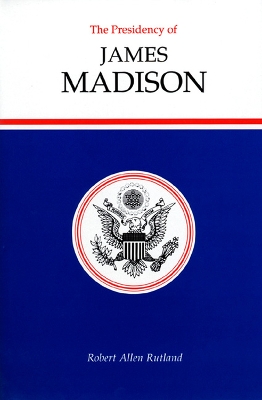American Presidency
1 total work
In this new study of the fourth presidency, distinguished historian Robert Allen Rutland paints a more complicated portrait. Rutland, former editor-in-chief of the Madison Papers, sees Madison as a bookish, practical statesman who worked furiously to avoid conflicts in his cabinet and in Congress. When he finally realized England would not be swayed by economic pressure, he boldly led the nation into a second war for independence that allowed the United States to emerge with a renewed sense of dignity and purpose.
Madison made some serious errors in judgment, according to Rutland. In time, though, he filled his cabinet with competent men, and, by some unexpected vetoes, renewed his commitment to republican ideals within a constitutional framework. During his last years in office Madison helped fashion a government that would luxuriate during the Era of Good Feeling and withstand the hard knocks of Andrew Jackson's democratic surge.
Rutland's lively narrative covers all major events of the Madison administration, including the War of 1812 and the push for national expansion. It provides a fresh interpretation not only of the contribution of Madison's presidency, but also of the master builder of the Constitution himself. Madison emerges neither as the weakling painted by Henry Adams nor as a demigod, but rather as a man who attempted to be the president envisioned at the Constitutional Convention and who achieved his highest priority, to strengthen the Union.
